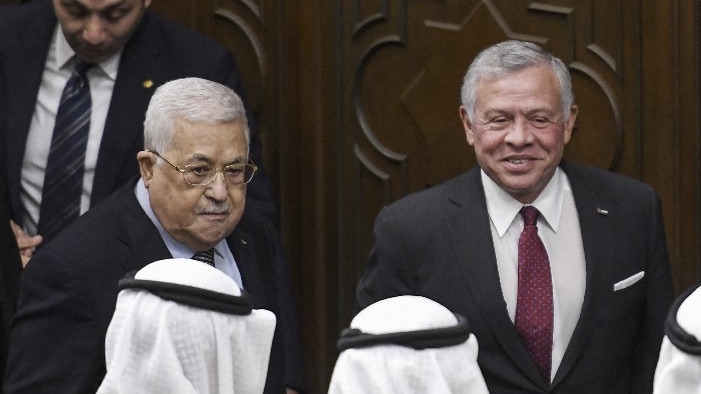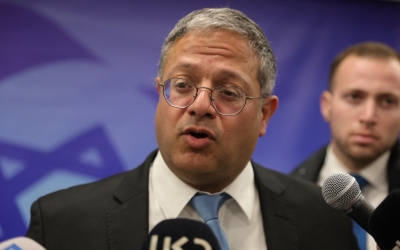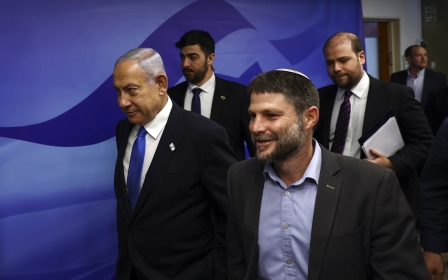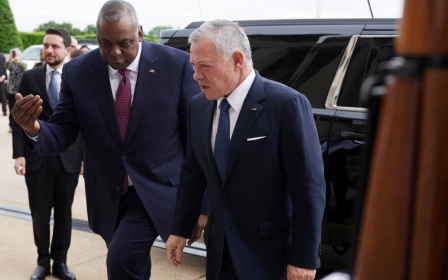Jordan king says 'duty to deter Israeli escalation' in Jerusalem

Jordan's King Abdullah II expressed on Sunday a commitment to "safeguard" Jerusalem's holy sites, in a meeting in Amman with Muslim and Christian religious leaders from the city.
A statement from the royal court said the king told the delegation, led by Palestinian President Mahmoud Abbas, that Jordan "will always be with you", according to AFP.
"It is the duty of every Muslim to deter Israeli escalations against… holy sites in Jerusalem," the king said, according to the statement.
The meeting followed tensions with the Israeli government over a minister's remarks denying the existence of the Palestinian people and fears of a flare-up in the Israeli-Palestinian conflict during the Muslim fasting month of Ramadan, which began on 23 March.
The king touted a longtime commitment to preserving "peace and harmony" at Jerusalem's Al-Aqsa Mosque complex - Islam's third holiest site, which Jordan administers. It is built on top of what Jews call the Temple Mount, Judaism's holiest site.
New MEE newsletter: Jerusalem Dispatch
Sign up to get the latest insights and analysis on Israel-Palestine, alongside Turkey Unpacked and other MEE newsletters
On Friday, Israeli police shot dead an Arab-Israeli medical student at the complex. The force said he had grabbed and fired an officer's gun, a claim Muhammad Al-Osaibi's family rejects.
Abdullah also hailed "Jerusalemites'… efforts to safeguard" the holy sites and "stressed the need to stop the displacement of Christians, as well as the repeated attacks on churches, religious figures and Christian property in Jerusalem", according to the statement.
On Friday, church leaders in Jerusalem appealed to the Israeli government to ensure Christians were able to worship freely during Easter and its run-up, expressing concern at mounting violence and acts of desecration over the past year.
During Sunday's meeting the Jordanian king "called on the international community to take a stand against the exclusionary and racist statements made recently by some Israeli officials", the statement said.
Last month, the foreign ministry in Amman said it had summoned Israel's ambassador to receive a "strongly worded letter of protest" following a widely condemned speech by far-right Finance Minister Bezalel Smotrich.
At an event in Paris, Smotrich said "there isn't a Palestinian people". He spoke from a lectern which featured a map of so-called Greater Israel, including the areas of the occupied West Bank and Jordan.
Jordan in 1994 became the second Arab country to recognise and sign a peace treaty with neighbouring Israel, after Egypt.
Middle East Eye delivers independent and unrivalled coverage and analysis of the Middle East, North Africa and beyond. To learn more about republishing this content and the associated fees, please fill out this form. More about MEE can be found here.





